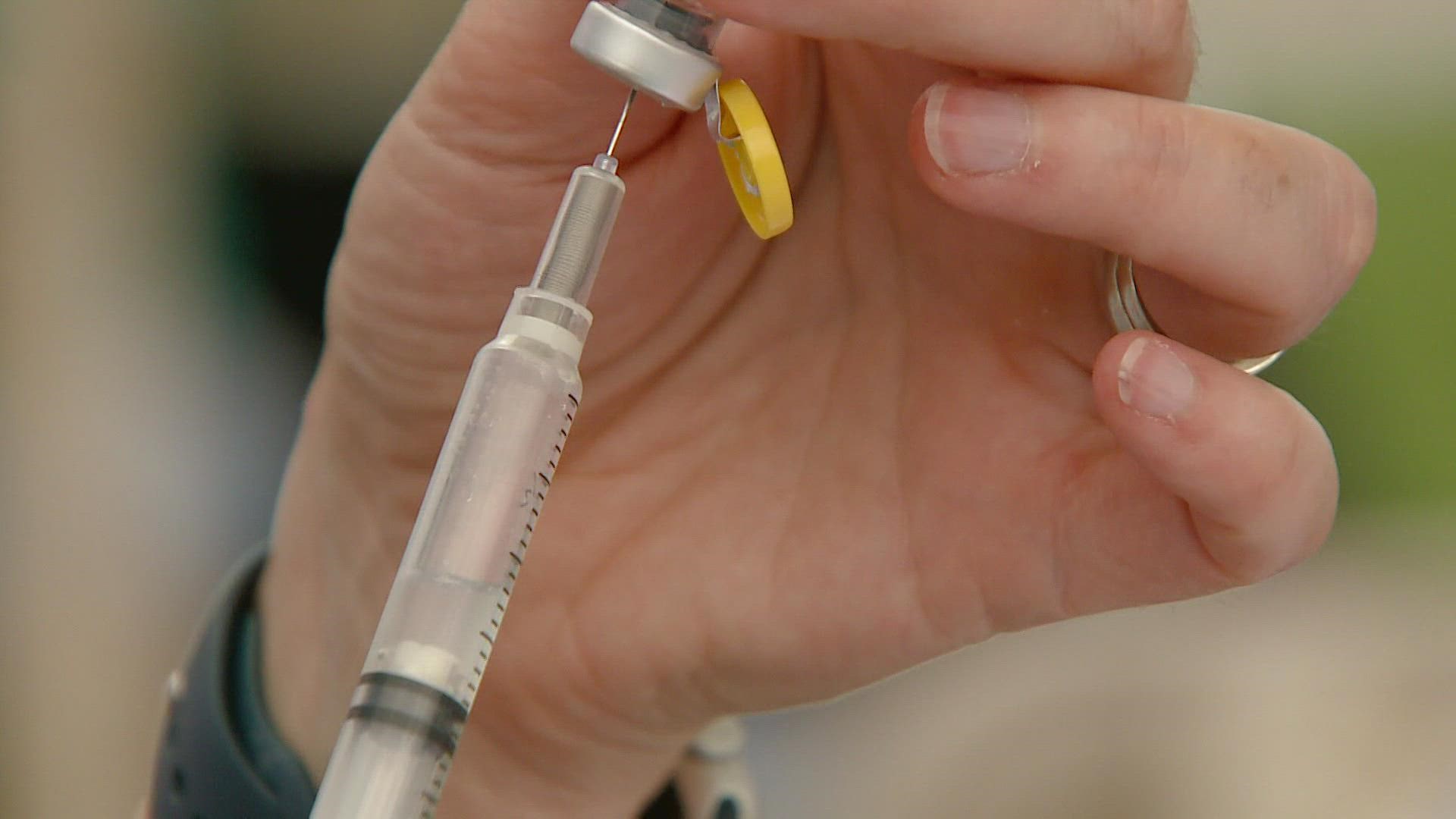COLORADO, USA — Coming out of one global pandemic, another virus outbreak continues to challenge health officials.
Colorado's response to monkeypox is expanding as more vaccine becomes available.
This week, the Colorado Department of Public Health and Environment (CDPHE) announced changes to the state’s monkeypox vaccination response, which includes opening appointments for second doses and expanding the criteria for eligibility.
“We’re trying to ensure people that are at high risk, that could have been exposed, that they have access to this vaccination,” said Diana Herrero, CDPHE’s Deputy Director of the Division of Disease Control and Public Health Response.
Supply for the vaccine has been limited since the outbreak started earlier this year. With Colorado getting more vaccines from the federal government, it's also changing its strategy on how to use each vial.
“A week or so ago we switched our vaccine strategy from giving subcutaneous doses to intradermal. When you administer monkeypox vaccine intradermally, you use a smaller dose. So were able to get up to 5 doses out of a vial versus a subcutaneous dose, you get 1 dose per vial,” Herrero explained.
“So that’s allowed us to stretch our dose, get more folks in for early protection with a first dose. And we now feel like we’re in a space where we can bring people back for their second doses so they get that full maximum protection that’s afforded with two doses.”
The minimum time between two doses is 28 days. Hererro said people who had to wait longer between shots can still get the second dose beyond that time frame. Even one dose provides some protection.
People can make an appointment for the vaccine through a new system on comassvax.org, or search a list of other providers on CDPHE’s website.
With greater vaccine supply, the state is now opening up vaccine appointments to a wider pool of people. Previously, the vaccine was only available to the highest risk population representing most of the positive cases: people who had been directly exposed to monkeypox, or men who have sex with other men.
According to the state's latest data, 235 people in Colorado have tested positive for monkeypox since May. Nine have been hospitalized, and none have died.
State data now also tracks demographics of positive cases - including county of residence, race, ethnicity, gender identity, and sexual orientation.
Monkeypox is spread through close, skin-to-skin contact. It can affect anyone, and is not just limited to people within the LGBTQ population. The latest vaccine eligibility reflects a wider at-risk population.
- Anyone (any sexual orientation or gender identity) who has had close physical contact with someone who has monkeypox in the last 14 days
- Anyone (any sexual orientation or gender identity) who:
- Has had multiple sexual partners in the last 14 days, or
- Has had sexual partners they did not previously know in the last 14 days, or
- Has had close physical contact with other people in a venue where anonymous or group sex may occur in the last 14 days, or
- Was diagnosed with gonorrhea or syphilis in the past three months, or
- Who already uses or is eligible for HIV PrEP (medication to prevent HIV, e.g. Truvada or Descovy or Apretude), or
- Who engages in commercial and/or transactional sex (e.g. sex in exchange for money, shelter, food and other goods or needs).
- Anyone (any sexual orientation or gender identity) identified by public health as a known high-risk contact of someone who has monkeypox.
“We were really trying to make sure the eligibility criteria was inclusive of anyone who was at highest risk, or in a high risk setting, regardless of sexual orientation or gender identity,” Herrero said.
SUGGESTED VIDEOS: Latest from 9NEWS

